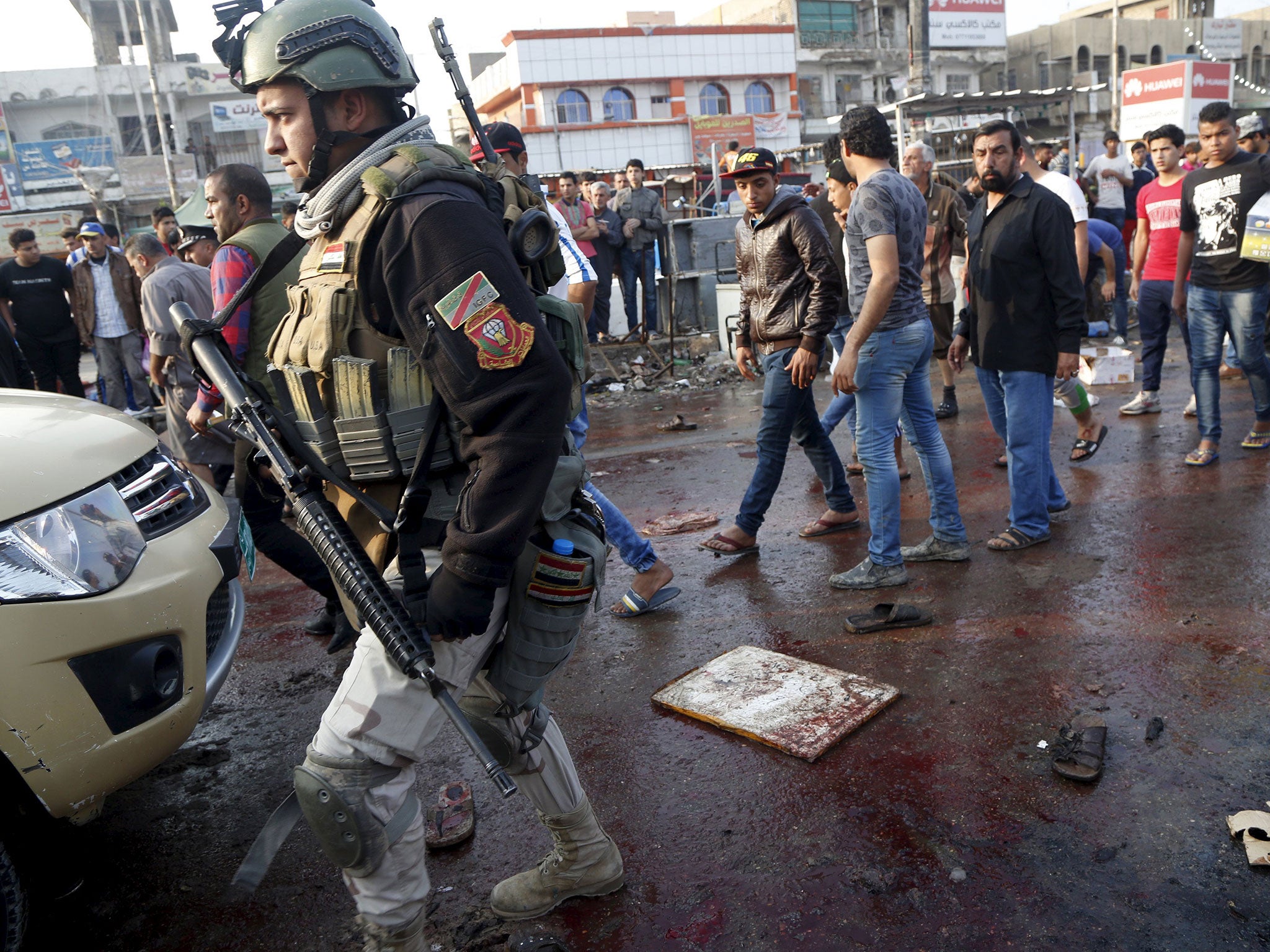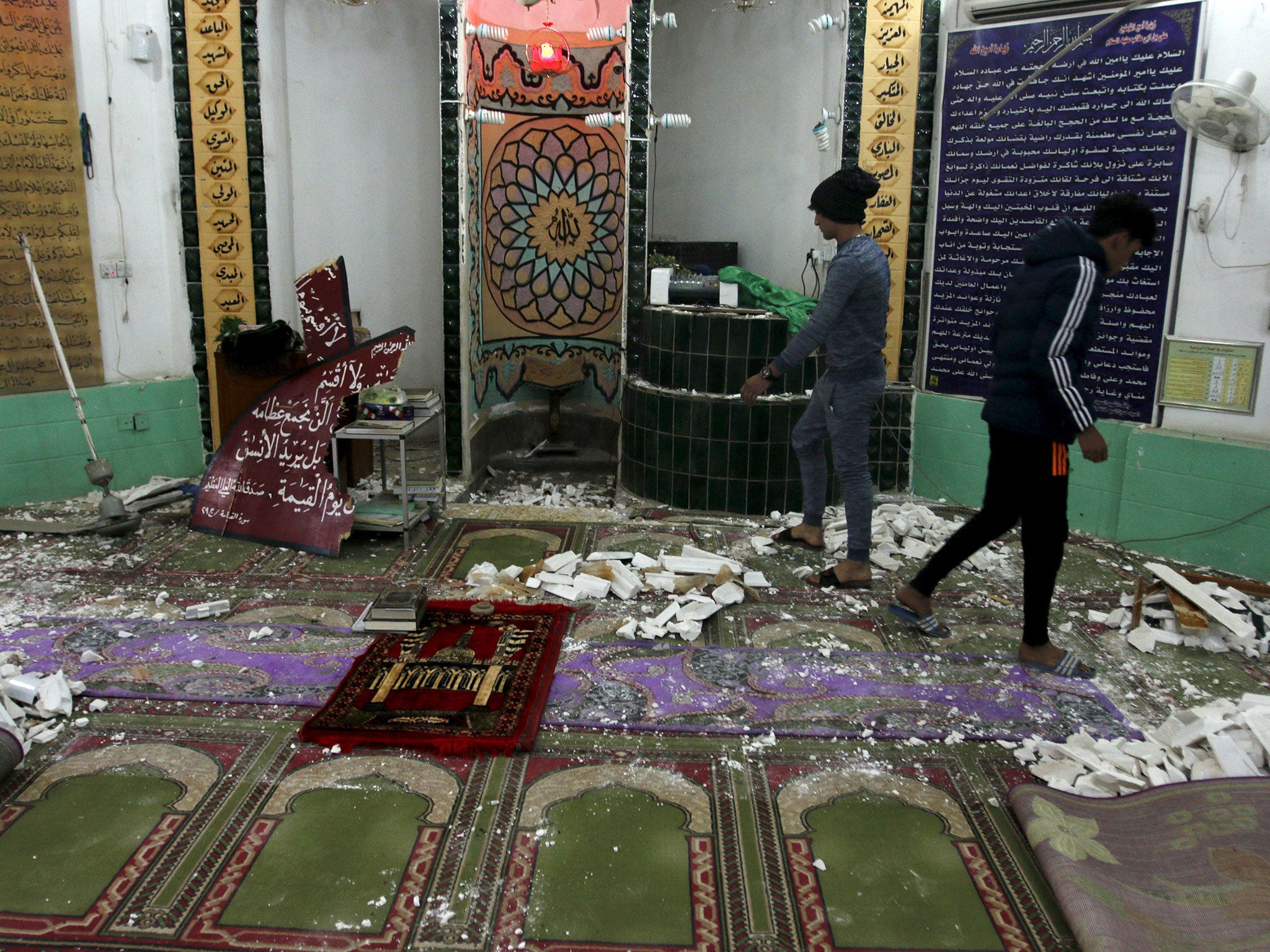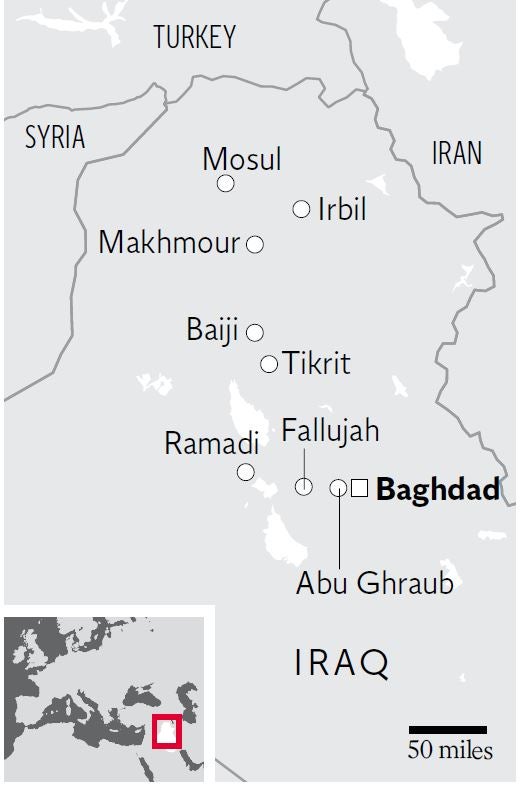Isis fights back in Iraq: Raid on Abu Ghraib punctures hopes the jihadist group is in retreat
The first major assault by the jihadists near the capital in months may indicate that far from being cowed by prolonged air strikes and an economic blockade, they are seizing the initiative in trying to deflect an attack by Iraqi forces on Mosul

Your support helps us to tell the story
From reproductive rights to climate change to Big Tech, The Independent is on the ground when the story is developing. Whether it's investigating the financials of Elon Musk's pro-Trump PAC or producing our latest documentary, 'The A Word', which shines a light on the American women fighting for reproductive rights, we know how important it is to parse out the facts from the messaging.
At such a critical moment in US history, we need reporters on the ground. Your donation allows us to keep sending journalists to speak to both sides of the story.
The Independent is trusted by Americans across the entire political spectrum. And unlike many other quality news outlets, we choose not to lock Americans out of our reporting and analysis with paywalls. We believe quality journalism should be available to everyone, paid for by those who can afford it.
Your support makes all the difference.The first major assault by the jihadists near the capital in months may indicate that far from being cowed by prolonged air strikes and an economic blockade, they are seizing the initiative in trying to deflect an attack by Iraqi forces on Mosul
Isis suicide bombers and fighters launched a surprise assault on army and police positions in Abu Ghraib on the western outskirts of Baghdad on Sunday in the first major attack by Isis close to the capital for months. Dozens of Isis gunmen driving captured Humvees and pick-ups with machine guns in the back captured a police station and a grain silo that was later set ablaze while three cars packed with explosives blew up close to a military barracks.
Fighting continued into the afternoon around the silo, with 20 Isis gunmen holding out inside and in a cemetery, as the attackers were pushed back by Iraqi security forces. At least 12 government troops were killed and 35 wounded.
The predominantly Sunni Arab suburb of Abu Ghraib, site of the notorious prison, has often been the scene of fighting because it is halfway between Baghdad and Fallujah, the Sunni city which has been held by Isis and extreme jihadis since January 2014. The attack shows that Isis can still launch sudden raids despite setbacks in Iraq over the past nine months, with the loss of Ramadi, the capital of Anbar province, which it captured in May 2015, as well as Tikrit and Sinjar.
The attack showed how effective Isis can be when it pursues guerrilla tactics in urban areas where it cannot be immediately targeted by aircraft from the US-led coalition or Iraq. The commander of military operations in western Baghdad, Maj-Gen Saad Harbiya, said on Sunday night that the situation was “under control” and a curfew had been imposed.
Isis combined its attack from Fallujah and the large village of Garma with bomb attacks on civilians in Baghdad, which killed 31 people. Two bombs exploded in a mobile-phone market in the overwhelmingly Shia district of Sadr City in west Baghdad. A few days ago two suicide bombers blew themselves up in a mosque in the Shia-majority Shuala district in west Baghdad, killing 15 people. The first bomber blew himself up among worshippers and the second detonated his suicide vest soon afterwards as security forces turned up to deal with the first attack,

Though none of these bomb attacks caused casualties on the scale of past atrocities in Baghdad, they have made people in the capital nervous. There were many checkpoints yesterday, particularly in the west of Baghdad, leading to more than usually bad traffic jams in the rest of the city.
And the bombings showed that Isis can still use suicide bombers in large numbers in vehicles and on foot. In the assault on Abu Ghraib, there were at least four bombers on foot as well as those in cars. It is an Isis tactic to compensate for territorial losses by targeting soft civilian targets. The UN Mission in Iraq says that 849 people were killed in Iraq in January, of whom 299 were civilians killed in Baghdad, a city of about seven million people.
Abu Ghraib is only 20 miles from the centre of Baghdad and not far from the international airport. The capture of Mosul in 2014 that cemented the rise of Isis came a year after a sophisticated attack on Abu Ghraib prison that freed between 500 and 1,000 extreme jihadi prisoners. It would be a mistake to read too much into a single raid, but the fact the latest attack took place at all may puncture a mood of growing confidence in Baghdad that Isis is beginning to implode under the impact of bombardment from the air and a tightening economic blockade.

The Iraqi security forces have only a limited number of combat troops, which depend for their firepower on the US-led coalition. Although this enabled them to retake Ramadi, some 80 per cent of the buildings in this Sunni Arab city were hit. The UN reported that, going by satellite pictures, some 3,200 buildings in the city centre were damaged, including 1,165 totally destroyed. There are still some Isis fighters in outlying parts of Ramadi and in nearby villages.
There has been growing speculation in Iraq about an attempt to recapture Mosul later this year. One Iraqi army division moved north to take up positions at Makhmour, east of Mosul, last week. It is possible that the Isis attack on Abu Ghraib is intended to keep its opponents from concentrating their forces in the north in preparation for an attack on Mosul. In the past a large proportion of the Iraqi army has been kept out of the fighting because it was needed to hold Baghdad.
The anti-Isis forces in Iraq are weakened by being divided between the regular security forces and al-Hashd al-Shaabi (Popular Mobilisation Forces), the powerful paramilitary movement that was created after the fall of Mosul 18 months ago. In theory the government, under pressure from the US, does not want to use the Hashd in combat on the grounds that it is sectarian and influenced by Iran.
Isis is under heavy military pressure in Iraq and Syria and is feeling the effect of prolonged bombing by the US-led coalition and the Russians. It has a very long front line to defend, but the Abu Ghraib attack yesterday shows that it can still gather enough forces to try to win a local success.
Subscribe to Independent Premium to bookmark this article
Want to bookmark your favourite articles and stories to read or reference later? Start your Independent Premium subscription today.
Join our commenting forum
Join thought-provoking conversations, follow other Independent readers and see their replies
Comments